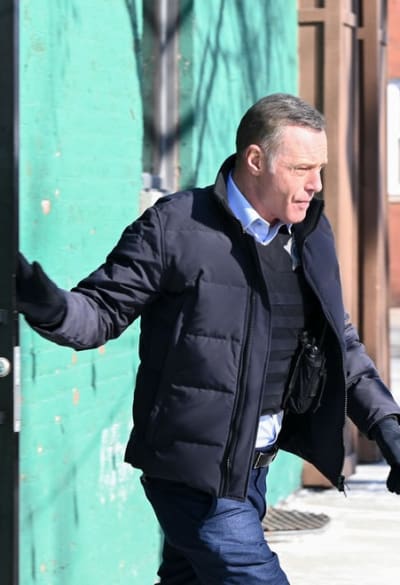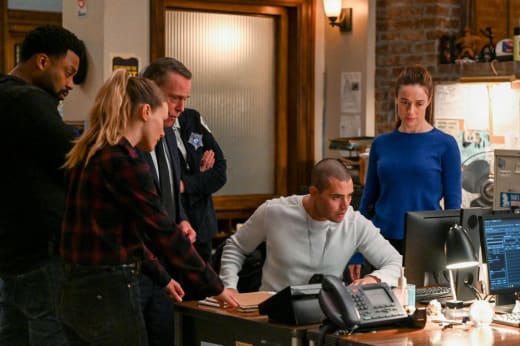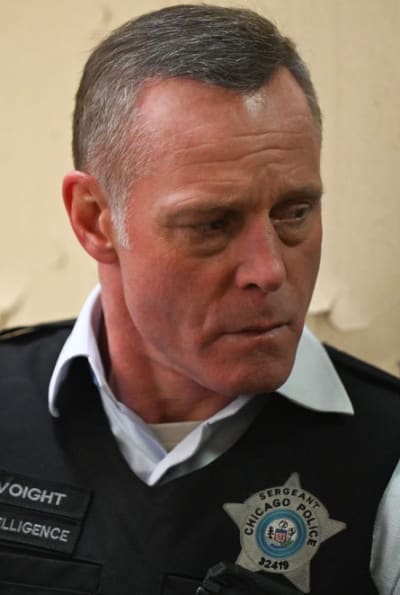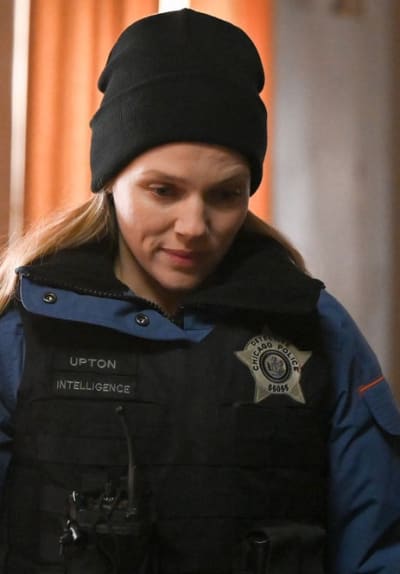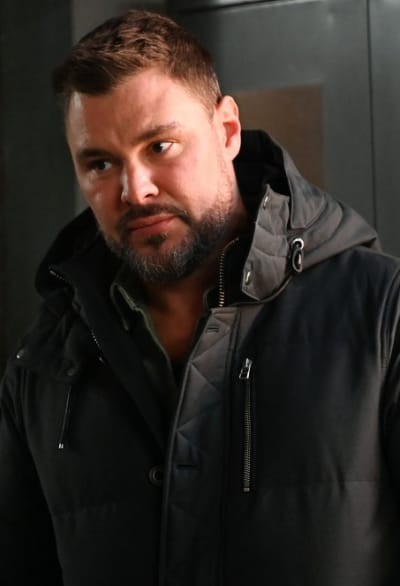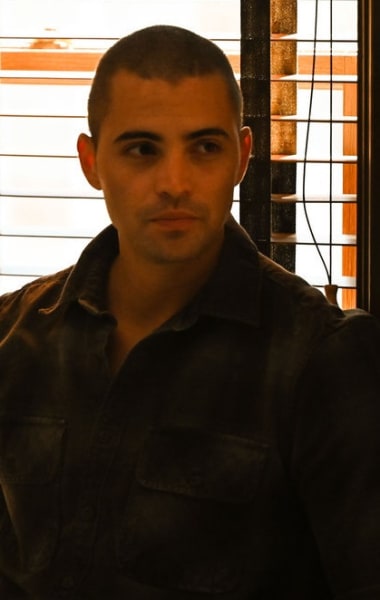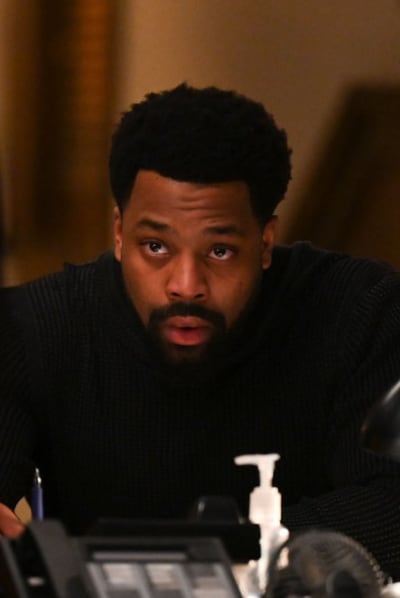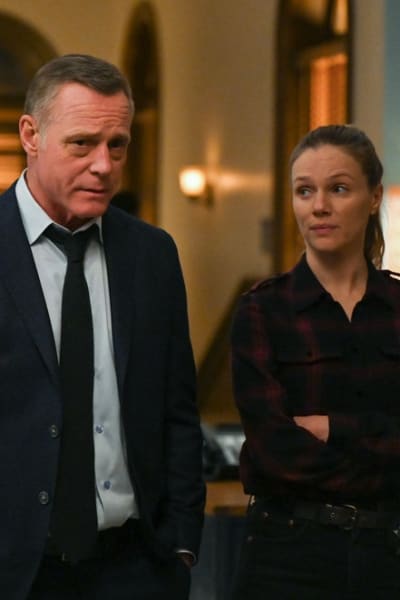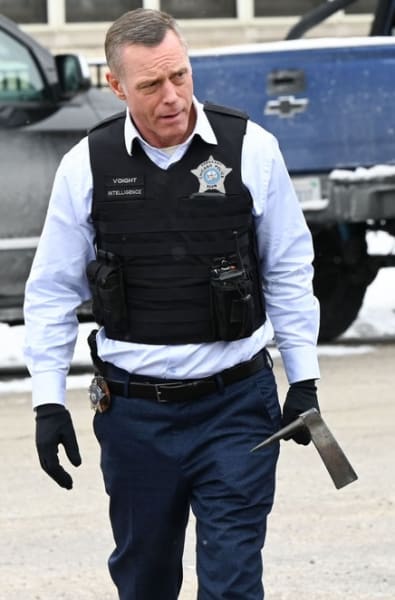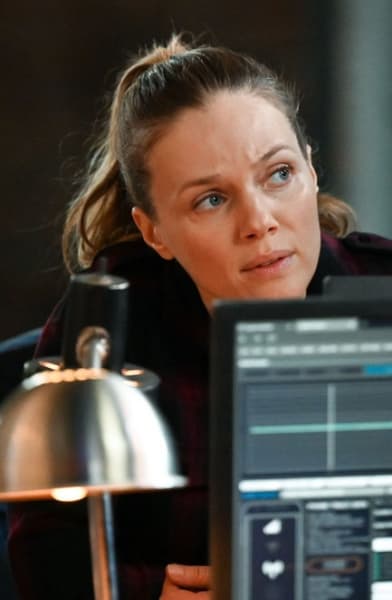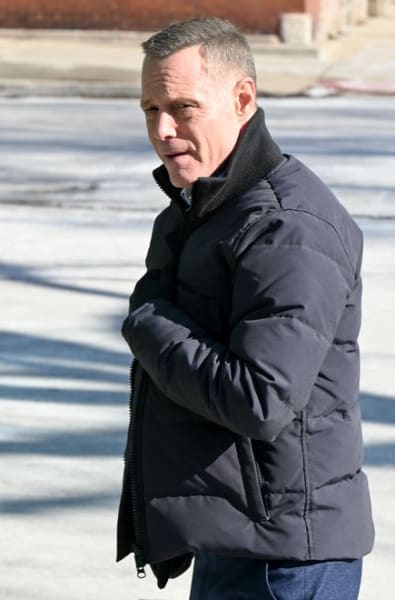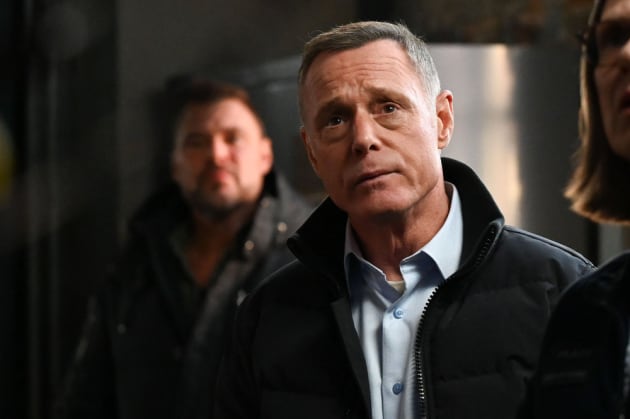
Chicago PD Season 10 Episode 16 Review: Deadlocked
Jesse Lee Soffer made a highly-anticipated return to the series.
Of course, the caveat was that it was only to make his directorial debut on the series with Chicago PD Season 10 Episode 16.
It was a strongly Voight-centric hour with a vintage CPD tone that potentially left Voight pondering the man he’s become after Chapman’s observations.
The relationship between Voight and Chapman has been intriguing, albeit slow-building. He has a fondness for her and has made assurances that he’d be by her side to get her far in her career.
As with other female colleagues, his dynamic with her is almost paternal.
And that’s a double-edged sword because that comes with an understanding of what he does for the people he cares about and intends to protect and how the weight of that impacts them as individuals and ironically strains or tarnishes the relationship he builds with them.
Voight knew how crucial the Morales case was for Chapman and what she’s carried with her since the tragic death of Vilar because of it.
Morales was essentially her whale, on a personal level, because she wanted justice, but also as a career-maker. A lot got tied up in putting this man behind bars for the rest of his life, and Chapman was finally at that point.
Of course, Voight didn’t want anything to jeopardize that for her, so naturally, it was the perfect case for the series to explore jury tampering and the lengths Voight would go to color outside the lines to protect the trial.
The case was perfectly set up and should have been a slam dunk. Voight’s testimony was damning and evocative, and Chapman, too, played on the emotions of the jury to ensure they understood the gravitas of how evil a man Morales was and the things he’s done.
But Christopher’s conflict was palpable. Not only did he have to sit and listen to how evil Morales was and know without a shadow of a doubt that the man was guilty as sin, but he was a victim of Morales’ mechanizations.
He was in the awful position of understanding exactly what Morales was capable of and wanting him to get the punishment he deserved while serving as a vehicle that would prevent that because Morales had his wife abducted.
Voight’s ability to hone in on Christopher and know what was happening was impressive and belied his years of experience. And that was further cemented when he was already thinking two steps ahead of everyone and everything on how he felt it needed to play out for the desired outcome.
If Chapman and the courts knew about the jury tampering, it would damage the case, and they’d have to deal with this all over again. And there was the possibility that Morales’s men would kill Julia in the process.
But the redundancy of these scenarios can give one pause. Within five minutes, we were right back to Voight, one-on-one with Hailey, her serving as a flake second as he proposed more off-the-books hijinks.
Chapman: Tell me what’s going on right now.
Voight: I’m knee-deep in the middle of a DTO investigation.
Chapman: You’re going to lie to me?
It’s not that the case didn’t have its fair share of action and expand into this web of drama under tight time constraints. But we’ve been here too many times with the same notes.
Hailey was hesitant about marking all this as an unofficial investigation devoid of the paperwork. Voight was gung-ho and insistent because he knows best, and we went down another path of deception, omission, and dancing around the lines of legality for the greater good.
At least this time, because of the short time frame they had to work with, attempting to find Julia and reassure Christopher before he made his final vote to determine Morales’ fate, Voight had no choice but to use the entirety of the team, including Trudy.
The team’s involvement, pulling them into what felt like a near-impossible mission, is what saved this particular case and kept it from leaning into the weaker points that typically have Voight and Hailey off to the side doing their own thing and keeping the team out of it.
If we’re all going to hell, we’re doing it together works better, if you will.
It’s not the say that there was prominence with the team. Ruzek was absent for most of the installment, off to set up the safe house where they do their covert operations. And Trudy is still criminally underused.
But Torres was back to slaying his surveillance gigs, going undercover, and narrowly escaping suspicion. Atwater teaming up with Hailey and Burgess in the same episode is always gratifying.
Kevin got in quite a bit of action during the installment, which was nice, especially considering the characters have their select moments of that since Halstead’s departure.
Prison footage with Morales led them to Ochoa, and from there, they got to the bottom of him calling the shots in Morales’ stead and hiring Lopez and others to abduct Julia and enact this plan.
But things went awry when they hurt Julia, needed assistance, and the kidnapper got killed.
The problem with working off books is that you can’t hide behind the official channels for everything, so while that comes with a certain freedom, it can also make their task more challenging, especially with their time constraints.
It’s a colossal risk, and Voight didn’t mind taking it, which gave us shades of classic installments of the series when Voight colored outside the letter of the light, made threats, and even put the cage to use.
Remember when you said you don’t think about it, about the type of man you are now? You should.
Chapman
Of course, this was significantly tamer. In that sense, I don’t know if viewers who long for the old days of the series will appreciate the effort to give a taste of what it used to be or grow more resentful that they still “have a leash” on Voight compared to the past.
Nevertheless, on the opposite side, it was pretty satisfying to see Ochoa not take the bait right out the gate. He was smart enough to know that they wouldn’t have picked him up in a surveillance van and tossed him in a basement rather than book him if they had enough to work with.
It evens things out better when the criminals actually know their rights and don’t let the cops, even if they are our protagonists, trample all over their rights.
Ochoa made them work for it, and they found their angle with the stash house with all those kilos of drugs and Felipe. Ochoa’s cancer-stricken brother was his weakness, and Voight was able to exploit that to find Julia in time.
The cases are more interesting when it’s like a chess match between the cops and the criminals, and, of course, little moments like Torres’ “Sup” blowing his cover are good for a few chuckles.
Christopher emerged as an unlikely and noble hero in all of this when he took control of his fear, putting that final nail in the coffin for Morales, forgoing rushing to his wife’s side because he got to take justice in his own hands.
It’s a bittersweet ending, especially since he and his wife will have to disappear after all of this, and one can hope she fares well after her substantial brain bleeding.
Voight rescuing her single-handled and taking down two perps in the process was a great scene because we don’t get as much badass Voight action as we once did.
Voight: Do you trust me?
Chapman: No. No, that’s not how this works. If you want trust, you earn it with the truth. What is Morales doing? Answer me.
But it doesn’t make Voight keeping Chapman in the dark any less frustrating, and she has every right to be pissed about it. Voight knows best; that’s how he operates with everything.
He doesn’t mind pissing people off or being the bad guy to protect those same people he cares about, but there does reach a point where he should examine that.
He operated under the guise of “It’s better to ask for forgiveness than seek permission.” But the truth is that Chapman had a right to know what was happening.
Her hunches were correct, and it wasn’t fair to her that Voight managed to squeeze in some gaslighting while saving Julia.
He had Chapman’s best interest in mind, but all of this could have fallen apart a dozen different ways, and she still could’ve been left holding the bag or complicit in his actions when they did.
She didn’t deserve to be blindsided by anything, and she deserved the right to choose for herself what she wanted to do or how deep into things she wanted to get.
Voight strips Chapman of her agency in his effort to protect her and risks ruining their relationship in the process, and it wasn’t even necessary.
In the end, Voight’s well-intentions, his care, his protectiveness, none of it will matter if the outcomes remain the same, and he doesn’t extend respect and courtesy to the people he’s trying to protect and cares about.
When Voight cares about you, it’s simultaneously the best and most infuriating thing ever.
Chapman is right in that he should examine the man he’s become and how it’s alienated him and led to burned bridges that didn’t need to burn.
Chapman poses a solid question, but it makes you wonder if it’ll just get lost in everything else, the way that surreptitious, disapproving glances his way from unit members do.
And when Voight is right when he’s right and right when he’s wrong, those who challenge him, in the most valid of ways, like Chapman in this instance, fall into this trap of coming across as bothersome more than anything else.
Voight: You tell me right now who Julia Egan is; you’ll save yourself a lot of trouble.
Ochoa: Who’s Julia?
Justice prevailed in the end because of Voight’s actions, so all’s well that end’s well, right?
We’ll have to see how this impacts Voight and Chapman’s relationship or if they’ll even bother exploring it further after this or chalk it up to an ethical disagreement among colleagues that never grow legs or gets deeper than that.
But it was an hour that had Voight being his most authentic Voight self. In some ways, I can’t think of a better installment for Soffer to hop on board directing. It’s the character he understands most outside of his own, and it shows.
Over to you, Chicago PD Fanatics.
What did you make of Soffer’s directorial debut on the series? Did you enjoy this Voight-centric? Do you think Voight needs to do some reflecting, or has Chapman overreacted? Sound off below.
You can watch Chicago PD online here via TV Fanatic.
Jasmine Blu is a senior staff writer for TV Fanatic. Follow her on Twitter.


